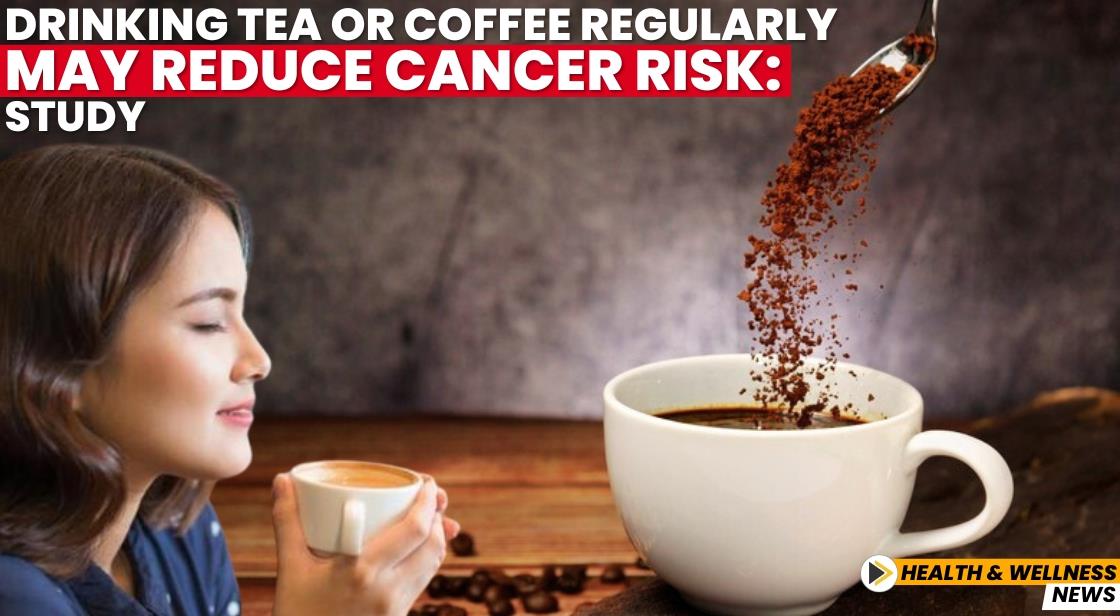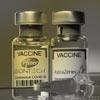Drinking Tea or Coffee Regularly May Reduce Cancer Risk: Study

News Synopsis
A recent study reveals that regular consumption of tea and coffee may significantly lower the risk of developing head and neck cancers. While the research doesn't establish these beverages as definitive protective agents against such cancers, it provides a clearer perspective on a long-standing debate with mixed results.
"While there has been prior research on coffee and tea consumption and reduced risk of cancer, this study highlighted their varying effects," stated Dr. Yuan-Chin Amy Lee from Huntsman Cancer Institute.
Research Methodology
Data from 14 Comprehensive Studies
The study analyzed data gathered from 14 research initiatives conducted across Europe, North America, and Latin America. Researchers examined over 25,000 records to understand dietary patterns among individuals diagnosed with different types of head and neck cancers.
Participants were asked to provide detailed accounts of their tea and coffee consumption habits through questionnaires. Notably, nine of the studies also included data on participants' intake of decaffeinated coffee, broadening the scope of the analysis.
Findings of the Study
Coffee Consumption and Cancer Risk Reduction
Upon adjusting for variables like age, sex, smoking habits, alcohol use, and fruit and vegetable intake, the findings revealed a striking trend:
-
Caffeinated coffee consumption: Drinking more than four cups of coffee daily was associated with a 17% reduced risk of head and neck cancers.
-
Oral and throat cancers: Those who drank four or more cups of coffee per day exhibited a 30% lower risk of oral cancer and a 22% reduced risk of throat cancer.
Decaffeinated Coffee Also Shows Promise
The study found that decaffeinated coffee offered some cancer-preventive benefits:
-
Individuals consuming decaf experienced a 25% reduction in the risk of oral cavity cancer.
However, researchers acknowledged a limitation: the study did not differentiate between the specific types of coffee consumed, which could influence the outcomes.
Tea Consumption and Its Complex Relationship with Cancer Risk
The relationship between tea consumption and cancer risk proved to be more nuanced:
-
Moderate tea consumption: Drinking up to one cup per day was linked to a 9% reduction in the risk of head and neck cancers and a lower risk of throat cancer.
-
Higher tea consumption: Surprisingly, drinking more than one cup daily was associated with a 38% increased risk of laryngeal cancer.
The research team suggested that excessive tea consumption might contribute to gastroesophageal reflux disease, a known risk factor for laryngeal cancer.
Implications of the Study
These findings shed light on the potential benefits and risks associated with regular tea and coffee consumption. While caffeinated and decaffeinated coffee seem to offer protective effects against certain cancers, the relationship between tea consumption and cancer risk requires further investigation.
Dr. Lee emphasized that future research should focus on exploring the types of tea and coffee consumed and their respective preparation methods to draw more conclusive results.
Conclusion
This groundbreaking study highlights the potential role of tea and coffee consumption in reducing the risk of head and neck cancers, especially with moderate to high coffee intake showing promising results. While caffeinated and decaffeinated coffee both demonstrated protective effects, the findings regarding tea consumption reveal a more complex relationship, emphasizing the importance of moderation.
These results serve as a valuable guide for individuals looking to make informed dietary choices to enhance their overall health. However, researchers caution against overinterpreting these findings, as further studies are required to confirm the effects of specific types and preparation methods of tea and coffee.
Ultimately, this research underscores the potential of dietary habits in influencing cancer risk and invites deeper exploration into the links between lifestyle and long-term health outcomes.
You May Like









